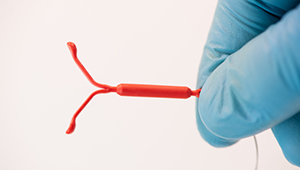Laura E. Ichikawa, MS
Biography
With more than 25 years at Kaiser Permanente Washington Health Research Institute (KPWHRI), Laura Ichikawa, MS, is known for her analytical skills, attention to detail regarding study design and data management, and knowledge in data visualization. Her experience includes observational studies, randomized controlled trials, case-control studies, and multisite analyses.
Laura is primarily focused on cancer research and women’s health. She’s has been involved with the Statistical Coordinating Center for the Breast Cancer Surveillance Consortium (BCSC), funded by the National Cancer Institute. She leads both data management activities and statistical analyses for the BCSC, where much of her work has been evaluating mammography performance for both screening and surveillance while also examining use of screening MRI (magnetic resonance imaging) and ultrasound. Laura also participated in collaborative research through the Cancer Research Network, including a widely publicized 2004 study that linked not having screening mammograms to late-stage breast cancer and, more recently, the Population-based Research to Optimize the Screening Process (PROSPR) project focusing on colorectal cancer screening. She is excited to continue her work in cancer research, including in screening, treatment, surveillance, and survival.
Laura’s earlier research with retired KPWHRI Senior Investigator Delia Scholes, PhD, included studies examining bone loss associated with the injectable hormonal contraceptive Depo-Provera in 2002 and 2005 and oral contraceptives in 2011.
Laura is a member of the American Statistical Association and its Puget Sound chapter.
Research interests and experience
-
Biostatistics
Longitudinal data analysis
-
Cancer
Biostatistics; breast cancer
-
Women's Health
Biostatistics; hormonal contraception and bone density
Recent publications
Taplin SH, Ichikawa L, Kerlikowske K, Ernster V, Rosenberg R, Yankaskas B, Carney P, Geller B, Urban N, Dignan M, Barlow WE, Ballard-Barbash R. Concordance of BI-RADS (Breast Imaging Reporting and Data System) assessments and management recommendations in screening mammography. Radiology. 2002;222:529-535. PubMed
Ott SM, Scholes D, LaCroix AZ, Ichikawa LE, Yoshida CK, Barlow WE. Effects of contraceptive use on bone biochemical markers in young women. J Clin Endocrinol Metab. 2001;86(1):179-85. PubMed
LaCroix AZ, Ott SM, Ichikawa L, Scholes D, Barlow WE. Low-dose hydrochlorothiazide and preservation of bone mineral density in older adults. A randomized, double-blind, placebo-controlled trial. Ann Intern Med. 2000;133(7):516-26. PubMed
Civic D, Scholes D, Ichikawa L, LaCroix AZ, Yoshida CK, Ott SM, Barlow WE. Depressive symptoms in users and non-users of depot medroxyprogesterone acetate. Contraception. 2000;61(6):385-90. PubMed
Scholes D, Lacroix AZ, Ott SM, Ichikawa LE, Barlow WE. Bone mineral density in women using depot medroxyprogesterone acetate for contraception. Obstet Gynecol. 1999;93(2):233-8. PubMed
Barlow WE, Ichikawa L, Rosner D, Izumi S. Analysis of case-cohort designs. J Clin Epidemiol. 1999;52(12):1165-72. PubMed
Treiman GS, Schneider PA, Lawrence PF, Pevec WC, Bush RL, Ichikawa L. Does stent placement improve the results of ineffective or complicated iliac artery angioplasty? J Vasc Surg. 1998;28(1):104-12; discussion 113-4. PubMed
Scholes D, Stergachis A, Ichikawa LE, Heidrich FE, Holmes KK, Stamm WE. Vaginal douching as a risk factor for cervical Chlamydia trachomatis infection. Obstet Gynecol. 1998;91(6):993-7. PubMed
Keech PM, Ichikawa L, Barlow W. A prospective study of contact lens complications in a managed care setting. Optom Vis Sci. 1996;73(10):653-8. PubMed
Treiman GS, Treiman RL, Ichikawa L, Van-Allen R. Should percutaneous transluminal angioplasty be recommended for treatment of infrageniculate popliteal artery or tibioperoneal truck stenosis? J Vasc Surg. 1995;22(4):457-63. PubMed
Research

Study measures risks of screening colonoscopies for older adults
The findings can help guide colorectal cancer screening decisions later in life.
Research

IUD perforation: Rare but important to know about
New study results in more precise language in the federally mandated warning about this possibility.
cancer research

Using breast MRI after cancer may lead to unneeded biopsies
A Kaiser Permanente-led BCSC study is among the largest ever to evaluate adding MRI surveillance for breast cancer survivors.
cancer screening

No need to follow up simple ovarian cysts
New KPWHRI study shows that women with simple cysts are not at increased risk of ovarian cancer.



